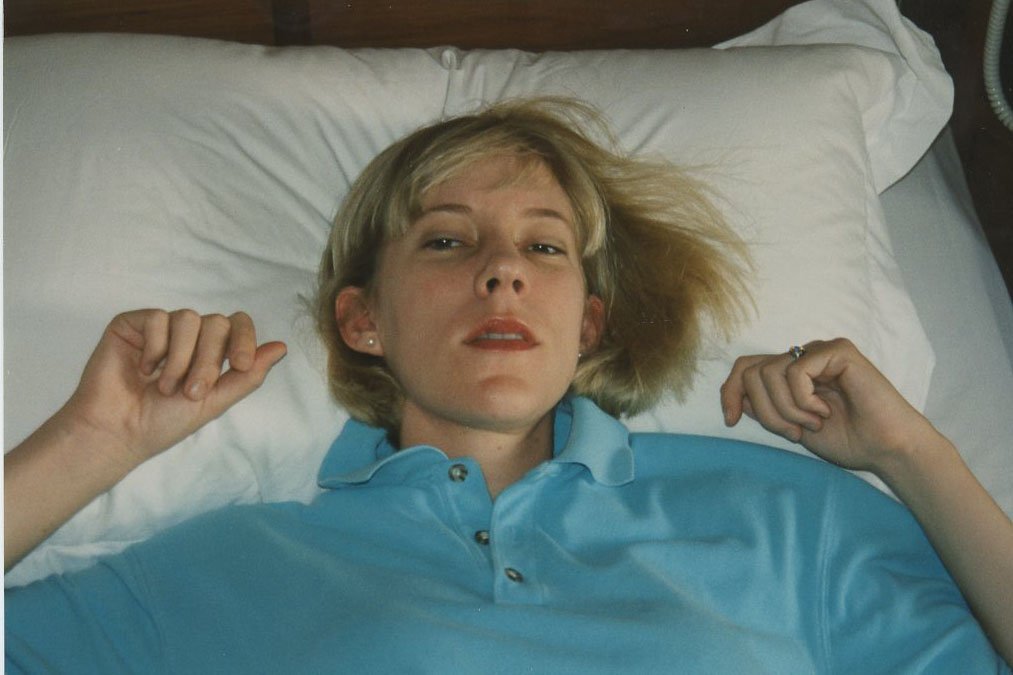Bring out your dead
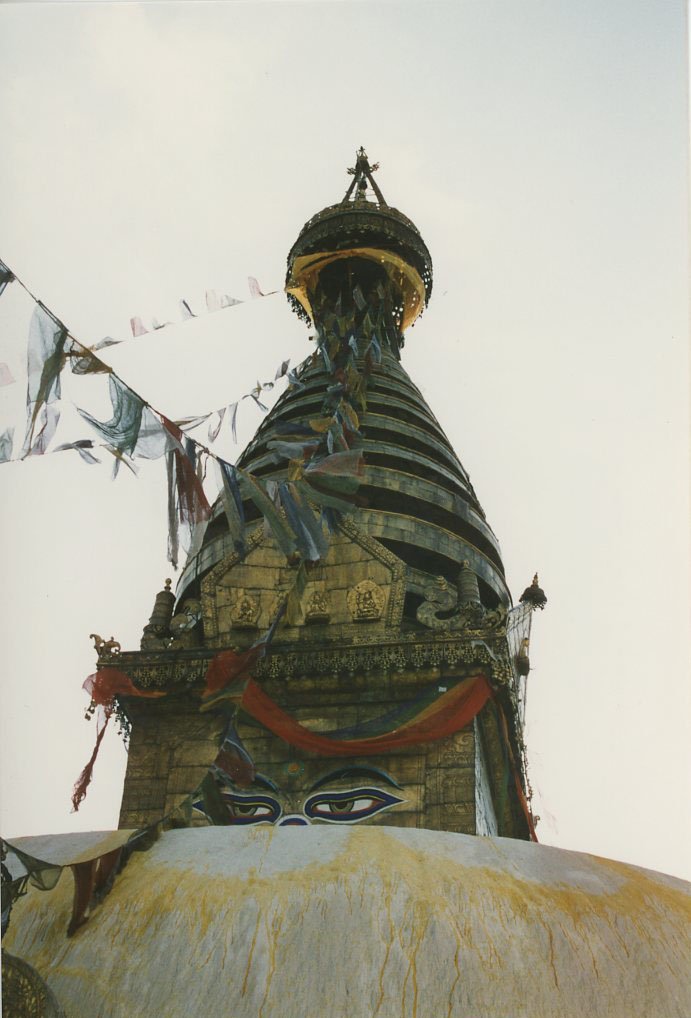
Except in Kathmandu, that’s really what they do. They bring their dead right down to the Bagmati River and cremate the remains right on the spot.
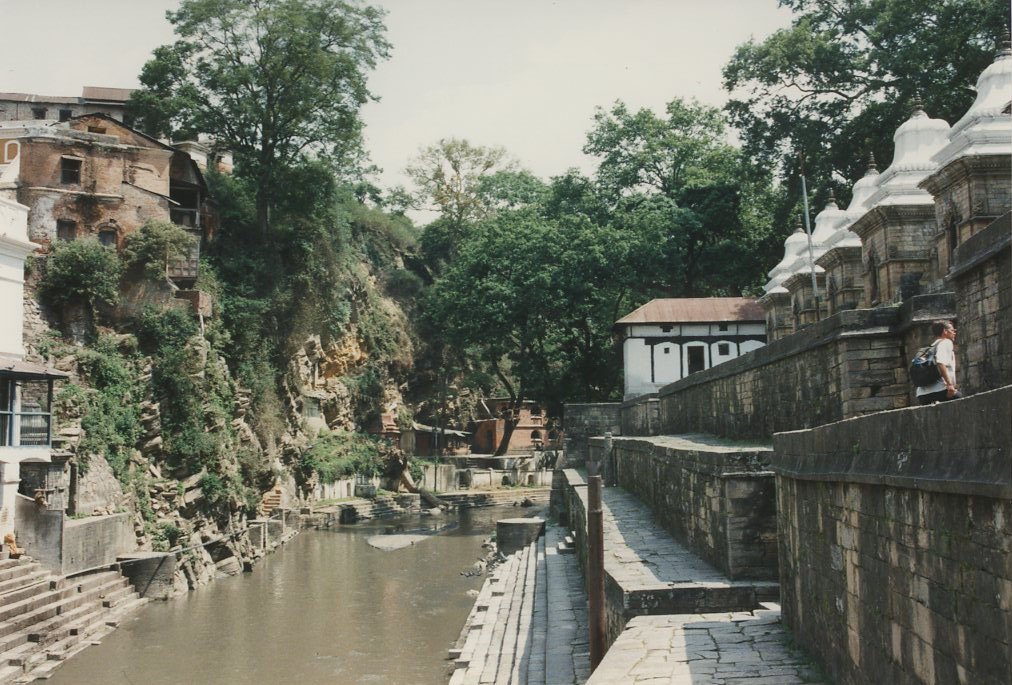
When you visit a place like Kathmandu after living in a place like California, your world turns upside down. You see things you never thought imaginable. And some things are not for the faint of heart.
Take the river. In cities, rivers do their things dividing sections with bridges that connect one neighborhood with another. But some bridges cross rivers at places that will blow your mind. Significant because if its eventual convergence with the holy Ganges, The Bagmati River at the site of Pashupatinath Temple is where Hindu citizens begin their final journey to the afterlife.
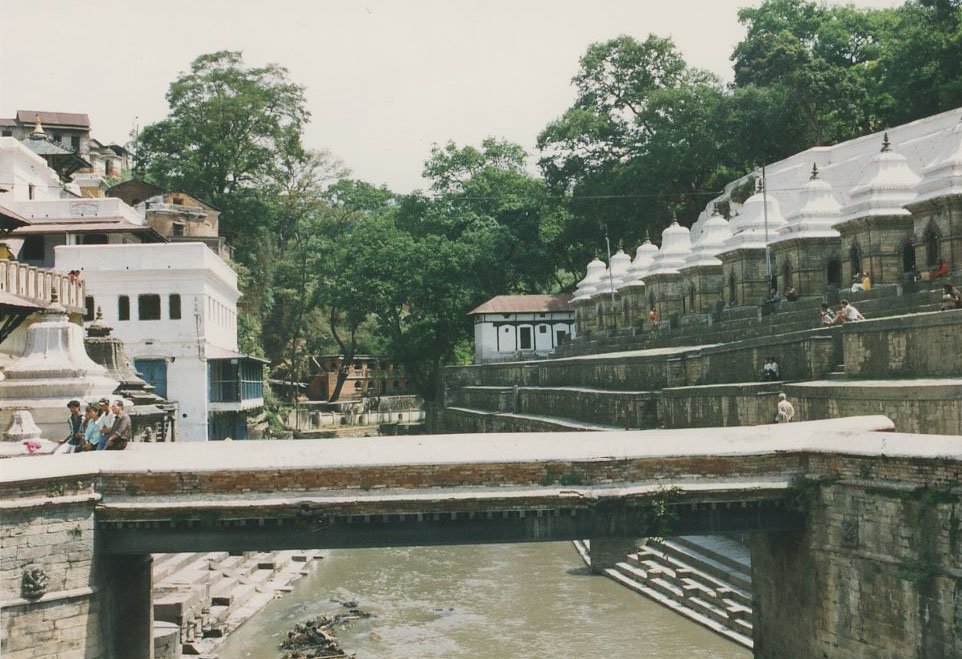
This spot is considered the holiest place in Kathmandu; people gather even before death to die here. I have never in my life seen actual funeral ceremonies where bodies are burned out in broad daylight. We live a sheltered life in the United States for the most part. It’s such a shock to see this personal connection to death when you come from a protected existence. Death is a funny thing in Western Culture. We squirrel away the dead quickly, wanting nothing to do with the processes before burial or cremation. Seeing this gives you a whole new appreciation for the transition we all ultimately face in a less frightening way. Here life and death coexist together. And no one seems bothered by it at all.
Notice the monkey chilling out - he's seen it all before.
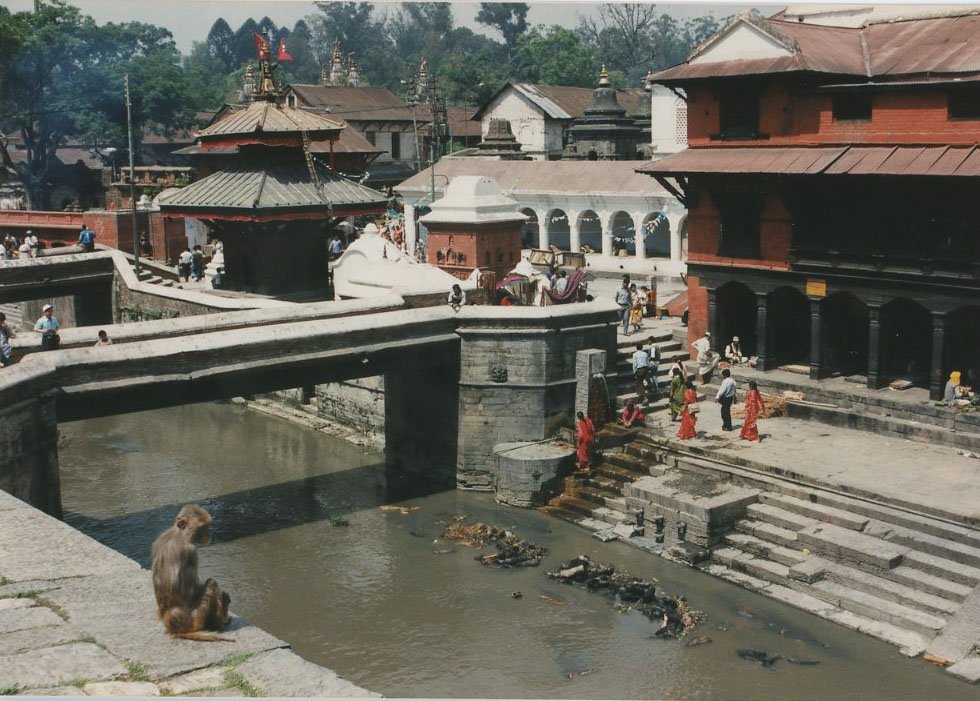
up and down the river you can see remnants of ash piled up in little pyres – these are human remains
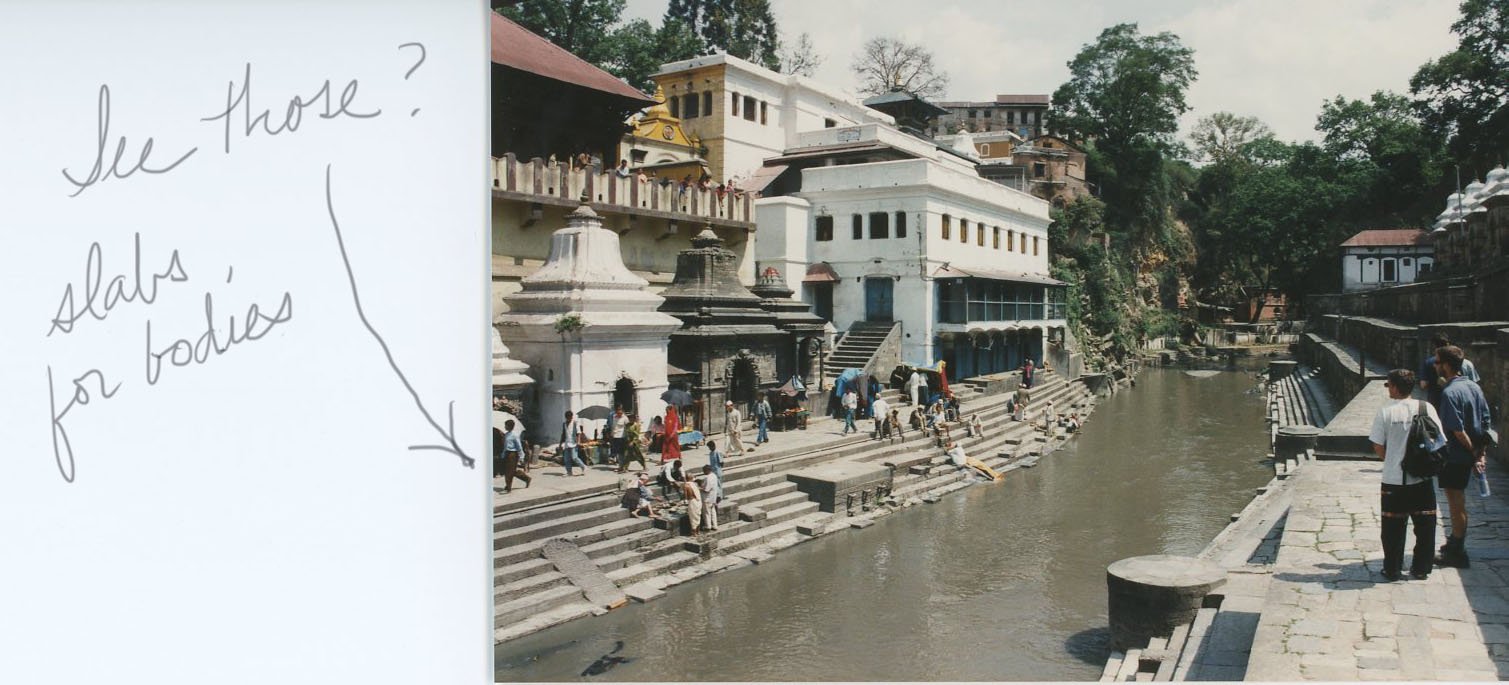
My initial reaction? Cool! I can’t f-ing believe this! With death and dying you have to be careful. We weren’t ogling a spectacle. This was raw, gritty, and oddly beautiful. It wasn’t a show put on for western tourists. This was life. And death. I admit I felt a little voyeuristic taking pictures.
Soon the reality hit me hard. These were bodies, mounds of burned human remains. Family members were mourning, but weren't put off by the ashes and unburned stacks of remains. These were people’s mothers and fathers, sons and daughters, cousins, aunts and uncles. They were dead. Really dead. And this is what was left. We would all burn the same way. That could be me down there. I felt overwhelmed and weak, like I was going to pass out. The smell wafted up towards where we were standing. Don’t think you can light a body on fire and not smell anything. The smell was acrid and almost sweet – more than burned flesh. There was also a tinge of burned fat - must have been. It wasn't long before it all became too much and we had to leave.
The whole experience was intense - more emotionally draining than anything else. I will never forget what I saw and how it made me feel - strangely privileged to catch an outsider’s peek into the culture of death in Kathmandu.
The end of the day gave way to reflection. This is how I felt. And I was pretty R E K T (that's for my daughter Catherine).
